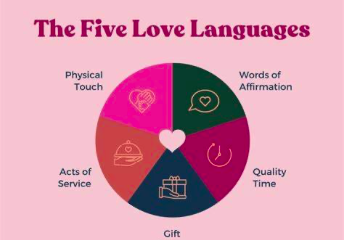Dating in your twenties is a peculiar experience. It might be challenging to understand the various relationships that arise due to social media, dating apps, and the countless opportunities to meet new people. Here comes the “situationship”—that hazy, ill-defined space between casual dating and a committed commitment. Situationships frequently appear like the simple solution in a world when everyone is discovering out who they are, what they want, and how to handle adulthood. However, are they truly all that they seem?
The messy, complex, and wonderful truth of this decade is what we at Surviving Our Twenties are all about. Let us dismantle situationships and see if they are worth the emotional outlay or if we would be better off swiping.
What is a Situationship?
In essence, a situationship is a partnership that lacks a name or any genuine commitment. It’s a relationship in which two individuals may be spending time together, going on dates, or hooking up informally without the precise definitions or expectations of a “relationship.” There is a widespread feeling of ambiguity about the direction of things, and the boundaries between friendship and romance are frequently blurred.
It’s possible that the two individuals in a situationship have different ideas about what they desire. While one person may believe it’s merely for fun, the other may be secretly hoping it develops into something more. The phrase “we’ll see where it goes” is frequently used, which seems simple and lighthearted but may easily turn complex when emotions are involved.
The Allure of Situationships
- No expectations or pressure
For many twentysomethings, commitment might feel like a burden. There might be a lot of pressure to commit to someone, define a relationship, and plan your future. With no expectations or titles, situationships appear to be the ideal way to escape such stresses. You enjoy the company, intimacy, and enjoyment that come with spending time with someone without having to have “the talk” about what’s coming up next.
If you’re simply not prepared for something substantial, this absence of pressure may be very alluring. A situationship provides an unrestricted method to enjoy someone else’s company without complicated things, whether you’re interested in your profession, personal development, or simply discovering who you are.
- Exploring Different Connections
Not all people in their twenties are certain of the qualities they want in a mate. Through situationships, you can experiment with various relationships with various individuals. Without the burden of commitment, you may be discovering what traits you value in a partner, the type of connection you’re seeking, or what you want in a relationship.
To discover what you desire, you don’t need to enter into a committed relationship right away. Sometimes, before making a long-term commitment, the absence of labels might help you better understand your own limitations and aspirations.
- Flexibility
The twenties are a period of transition. Personal identities, friendships, and careers are all changing. You don’t have to feel stuck in a relationship that you could outgrow or need to rethink as your priorities change when you’re in a situationship. It requires little upkeep, which can be freeing. Planning ahead, getting to know each other’s families, and worrying about reaching particular milestones that are associated with more conventional relationships are all unnecessary.
The Downsides of Situationships: Why Relationships Can Be Tricky
- Emotional Confusion
The main drawback of situationships is that they can cause a great deal of emotional ambiguity. The feelings are still present despite the absence of commitment; in fact, they are frequently greater. It’s possible for you to grow attached to someone who doesn’t share your feelings, or the other way around. It’s more possible that one partner will want something more serious while the other is happy with things being casual the longer you’re in a situationship.
Feelings of hurt, disappointment, and frustration may result from this mismatch. You may feel as though you’re wasting your time if you begin to develop feelings for someone who isn’t prepared to reciprocate your emotional investment.
- Unclear Boundaries
Boundaries can frequently become hazy since the relationship’s definition is unclear. You may ponder what is acceptable and unacceptable behavior from one another. Can you go out with other people? Is it better to call or text frequently or just when it’s convenient for you? There may be many gray zones as a result of these ill-defined boundaries, which leaves space for miscommunications and possible conflict.
Boundaries are typically established early on and upheld in a formal partnership. These limits may change in a situationship, leading to awkwardness and stress.
- Lost Chances for Genuine Connection
Situationships can be enjoyable and low-maintenance in the short term, but they can also keep you from developing a deeper relationship. You can wind up delaying the open, honest discussions that provide the groundwork for a long-lasting partnership. You risk missing out on chances to develop a relationship, gain trust, or totally commit to someone who would become a wonderful companion as you spend time in this ambiguous area.
We frequently find ourselves in a state of uncertainty during situationships, wondering if the person we are with is really the one we should be concentrating on. We may be prevented from creating lasting, meaningful relationships by the ambiguity.
- Can Cause Long-Term Frustration
In the end, situationships have the drawback of rarely remaining in that carefree state for very long. Inevitably, someone will want more, and when that occurs, things frequently escalate. One person leaves, irritated by the lack of commitment, or you both decide to move things along. Although situationships can be quite enjoyable in the near term, they frequently end or leave one partner feeling disappointed over time.
Are Situationships Worth It?
What you’re looking for will determine the response. A situationship could seem like the ideal fit if you’re content with your life, concentrating on your work, or simply not ready to commit to someone. It lets you enjoy yourself without having to worry about labels. However, a situationship may leave you feeling empty or unsatisfied if you value emotional clarity, want to feel safe in your relationships, or are hoping for a long-term commitment.
It’s crucial to strike a balance between honesty and exploration in your twenties, both with other people and with yourself. A situationship can be a stress-free way to enjoy someone’s company if you are open and explicit about what you desire. However, it could be worthwhile to avoid the ambiguities and pursue partnerships with clearer commitments if you’re looking for anything more.
We at Surviving Our Twenties are aware that there is no one-size-fits-all approach to dating. It all comes down to determining what suits you, being forthright about your requirements, and understanding when to leave a situation when it isn’t working for you. Although they might be enjoyable, situationships are not suitable for everyone. Don’t be scared to follow your instincts and look for the kind of connection that makes you feel.
If you want to learn more about relationships subscribe to my newsletter! This week I will be releasing two newsletters pertaining to navigating relationships.


